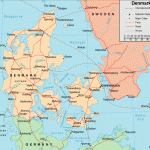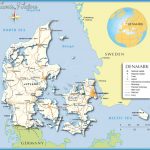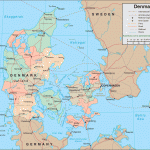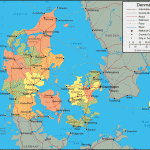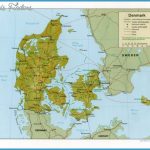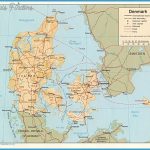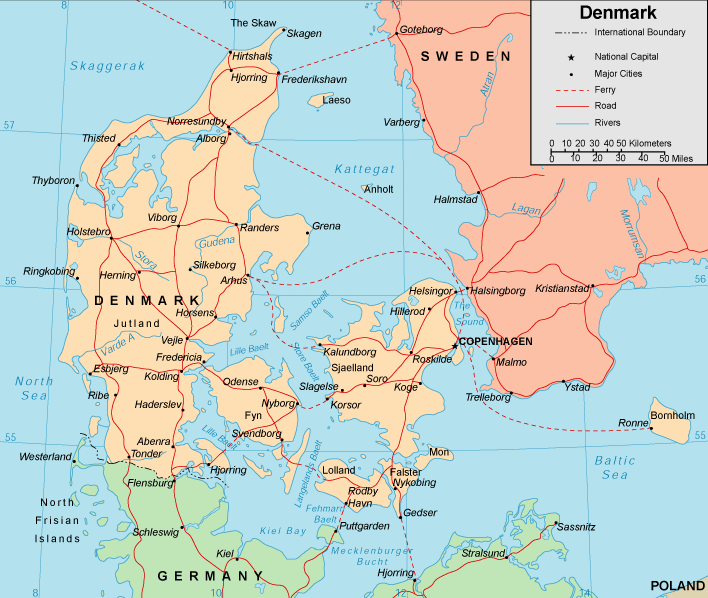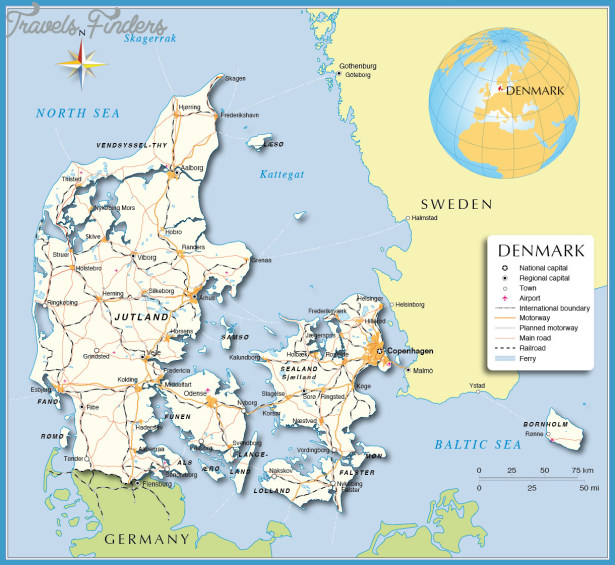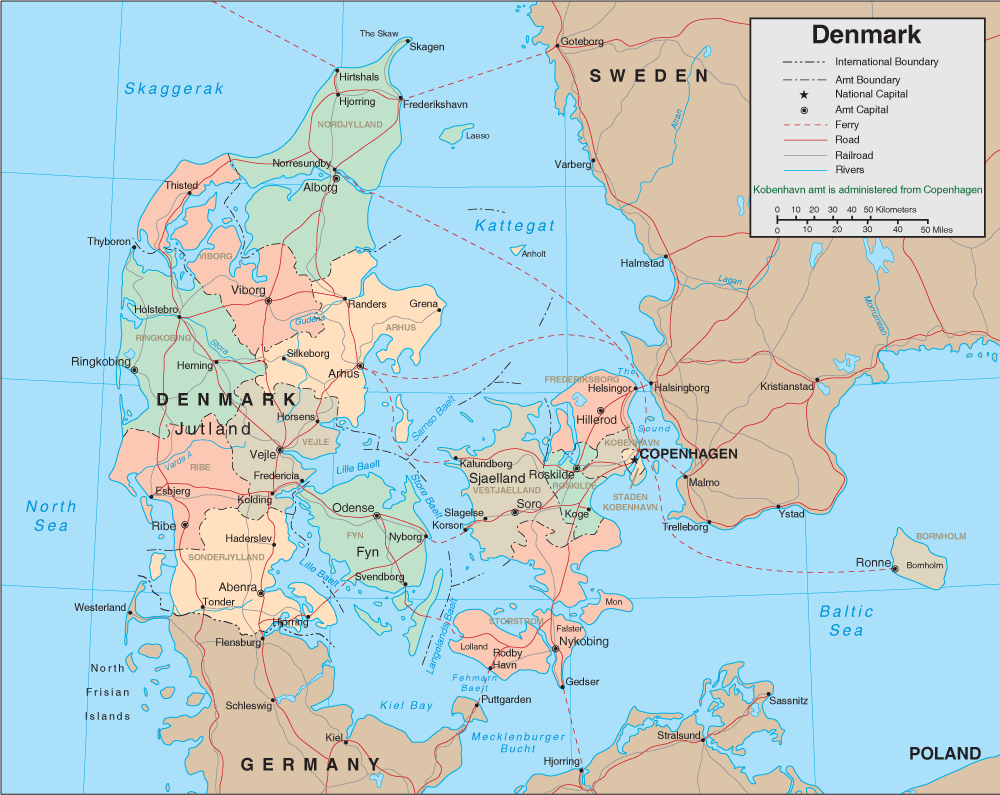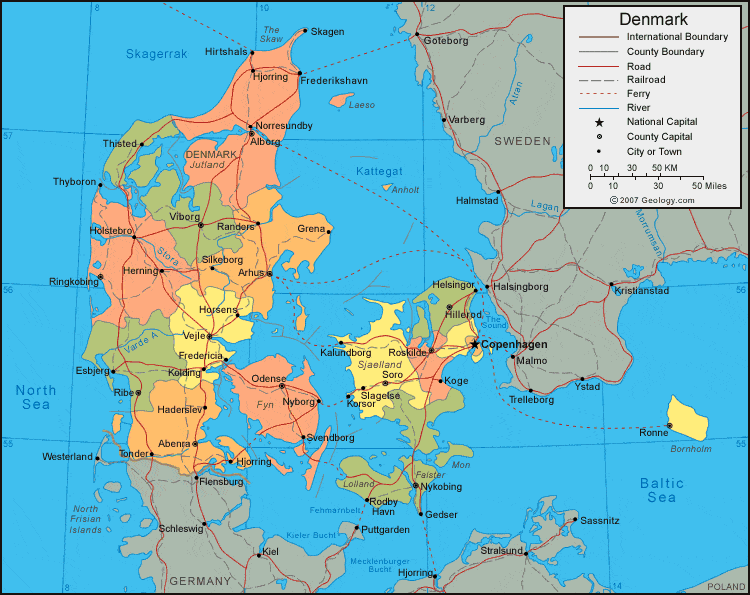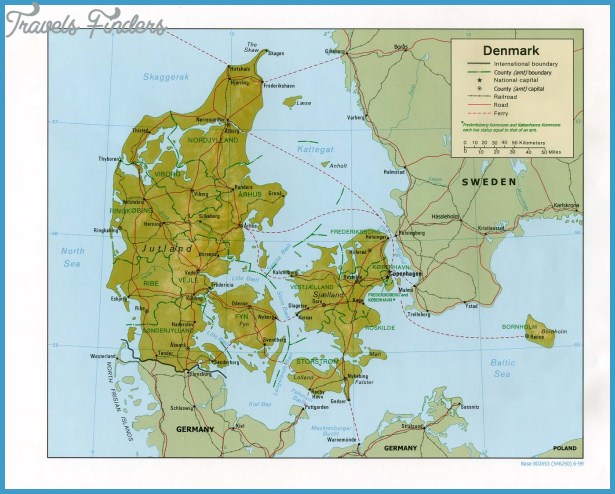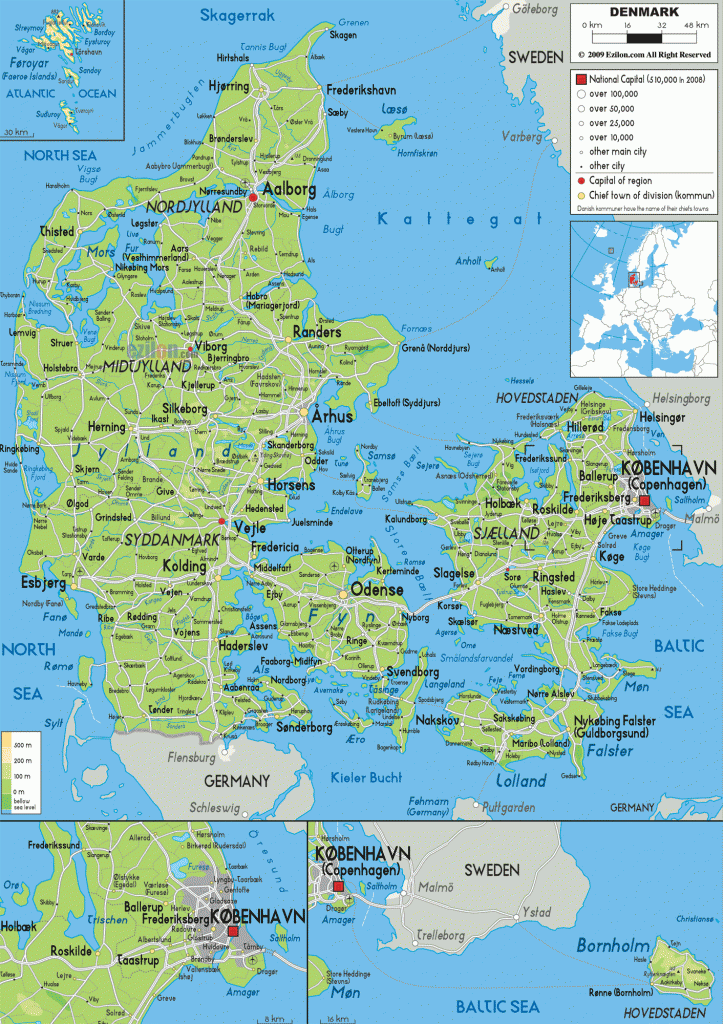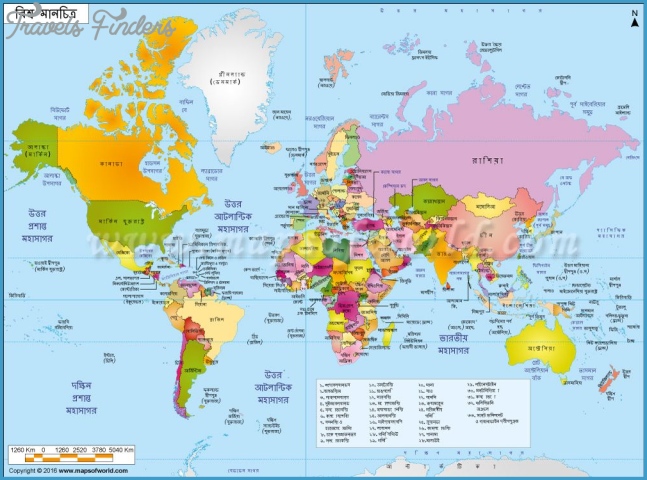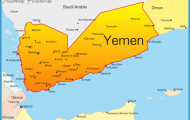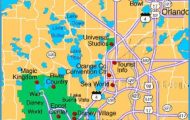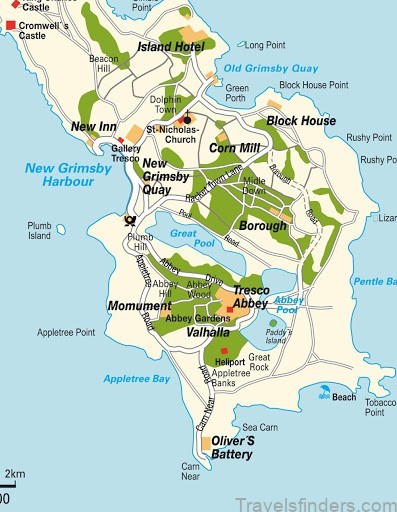Denmark Map
TOURIST SERVICES AND MONEY
Police: 112. Ambulance: 112. Fire: si 12.
TOURIST OFFICES. Contact the tourist board in Denmark at Islands Brygge 43, 2300 Copenhagen S (32 88 99 00; www.visitdenmark.dt.dk). Tourist Boards at home include: UK, 55 Sloane St. London SW1X9SY ( 7259 5959; www.dtb.dt.dk); US, 18th fl. 655 3rd Ave. New York, NY 10017 (212-885-9700; www.goscandinavia.com). Additional tourist info and helpful Glmaps can be found at www.krak.dk.
MONEY. The Danish unit of currency is the krone (kr), which is divided into 100 0re. The easiest way to get cash is from ATMs; cash cards are widely accepted, and many machines give advances on credit cards. Denmark has a high cost of living; expect to pay 85-130kr for a hostel bed, 300-850kr for a hotel room, 75-150kr for a day’s groceries, and 40-100kr for a cheap restaurant meal. A barebones day in Denmark might cost 250-350kr; a slightly more comfortable day might cost 400-600kr. The European Union imposes a value-added tax (VAT) on goods and services purchased within the EU, which is included in the price (see 16). Denmark’s VAT is one of the highest in Europe (25%). Non-EU citizens can get a VAT refund upon leaving the country for purchases in any one store that total over 300kr. There are no hard and fast rules for tipping, but it’s always polite to round up to the nearest lOkr in restaurants and for taxis. In general, service at restaurants is included in the bill, although tipping up to 15% is becoming common in Copenhagen.
BUSINESS HOURS. Shops are normally open Monday to Thursday from about 9 or 10am to 6pm and Friday until 7 or 8pm; they are usually open Saturday mornings. Shops in Copenhagen stay open all day Saturday. Regular banking hours are Monday to Friday 9:30am-4pm, Thursday until 6pm.
COMMUNICATION
Country code: 45. international dialing prefix: 00.

